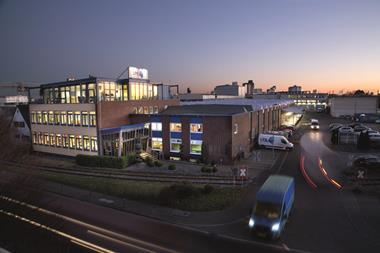Agility Global Integrated Logistics (GIL) saw full year 2019 revenue fall 2.5% to KD1.1bn, in what was described as “a challenging year for the freight forwarding industry as a whole”.
GIL, the freight forwarding arm of the Kuwait-based Agility logistics and warehousing group, reported a full year 2019 decline versus 2018 of 1.4% in pre-tax earnings to KD35.4m.
A spokesperson said that the fall was “mainly driven by the costs associated to the acceleration of the digital transformation”.
GIL’s full year airfreight volumes fell 6.8% versus 2018 and ocean freight volumes were down 0.6%, “driven by declining market demand, but were offset by higher yields”.
Fourth quarter 2019 airfreight tonnages were down 7% as a result of “falling trade volumes and lower demand from customers across industries and geographies”.
The decline in air cargo volume was partially offset by higher yields – expressed as net revenue/ton – which increased 1.1% from same quarter last year.
GIL’s fourth quarter net revenue was KD70m, a 3.3% increase versus like period 2018. The increase was driven mainly by growth in project logistics, contract logistics, and fairs and events.
GIL’s fourth quarter ebitda was KD10.9m, a 3.8% decline from same period in 2018. The decrease was due to higher operating expenses related to new contract logistics facilities, as well as investments in digital transformation.
GIL’s year-to-date net revenue improved 2.9%. Net revenue growth was driven by "strong freight forwarding" yields; higher warehouse utilization and new facilities in contract logistics; and greater contributions from project logistics and fairs and events specialty products.
The Agility group as a whole reported 2019 net profit of KD86.8m, an increase of 7% from 2018, while full year revenue reached just under KD1.6bn, up by 1.8%, and ebitda was KD193.1m, surging by 24.7%.
Tarek Sultan, Agility vice chairman and chief executive, said: “Global trade tensions, regional economic uncertainty, and financial market pressure in emerging markets all contributed to a challenging year for our logistics business.
“Internally, the costs associated with our investment in digitization also had an impact; one that we believe will continue in 2020.
“Driving operational efficiency and better customer service through digitization continue to be a priority. It is an investment in our future.”










